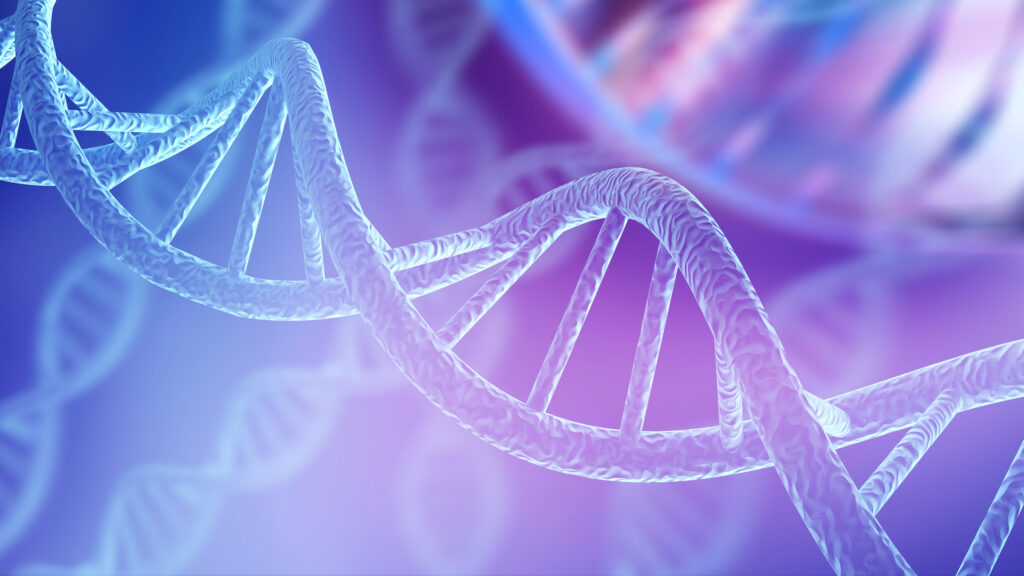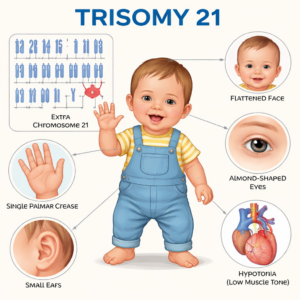Autosomal dominant inheritance is a type of genetic inheritance and it explains how a gene mutation is passed down from parent to child.
When it comes to autosomal dominant inheritance, just one copy of the gene mutation is enough to cause the related rare disease or genetic syndrome.
This consequently means that a child, with one parent with a gene mutation, has a 50% chance of inheriting the same gene mutation. This means they have a 50% chance of inheriting and developing the related genetic disorder caused by the gene mutation.
Genes associated with autosomal inheritance are located on the autosomes – one of the 22 non-sex chromosomes. This means prevalence is equal amongst males and females.
Autosomal dominant syndromes
Huntington’s disease is one example of an autosomal dominant disorder. This genetic condition leads to the degeneration of the body’s brain and nerve cells. It affects mainly older adults and leads to the deterioration of their mental and physical abilities. Early symptoms of this genetic disorder include memory lapses, stumbling, depression, and mood swings. There is no current cure for this disorder, and it is usually fatal within 10-25 years of the first onset of symptoms.
Marfan syndrome is an autosomal dominant disorder. It affects the body’s connective tissue, and one of its main symptoms is over-flexible joints. Affected individuals are characterized by their tall and thin stature. Marfan is also usually not diagnosed until later in adulthood. A mutation in the FBN1 gene is responsible for causing the syndrome.
BRCA1 and BRCA2 gene mutations, which are believed to cause a higher risk of breast cancer, are also inherited in an autosomal dominant pattern.
Autosomal dominant inheritance and genetic counseling
Genetic counseling concerning autosomal dominant inheritance can take many forms.
It can –
- Help individuals and families understand what it is, and how it might affect the future genetic and overall health of their children (both born and future)
- Help individuals and families explore genetic carrier screening options, to evaluate the risk of passing down a specific genetic mutation to children and the potential chance of developing a rare syndrome
- If parents have undergone carrier screening, genetic counseling can help them understand what their results mean, and if as the carrier of an autosomal dominant gene mutation, what this means for their own, and their future children’s health
- It can help support families who have received a diagnosis of an autosomal dominant syndrome, and help them understand what this means in terms of management and care both in the short and long term
Genetic counseling is an important part of the diagnosis process for all rare diseases, regardless of how they are inherited. The Family Health Checker app is designed to help parents address concerns about their child’s developmental and genetic health by offering AI-powered assessments through a free, easy-to-use platform. Many developmental delays may be linked to genetic factors and early diagnosis and intervention are essential. After the assessment is complete, parents are given a free evalutation report identifying possible concerns. The app also provides options for connecting with healthcare professionals for further evaluation and a no-cost genetic test for eligible children. With its secure, user-friendly design and compatibility across various devices, the Family Health Checker app enables parents to assess their child’s development comfortably from home. While AI tools can simplify and accelerate the diagnostic process, it is important to consult a healthcare professional for an official diagnosis and tailored advice.
.



